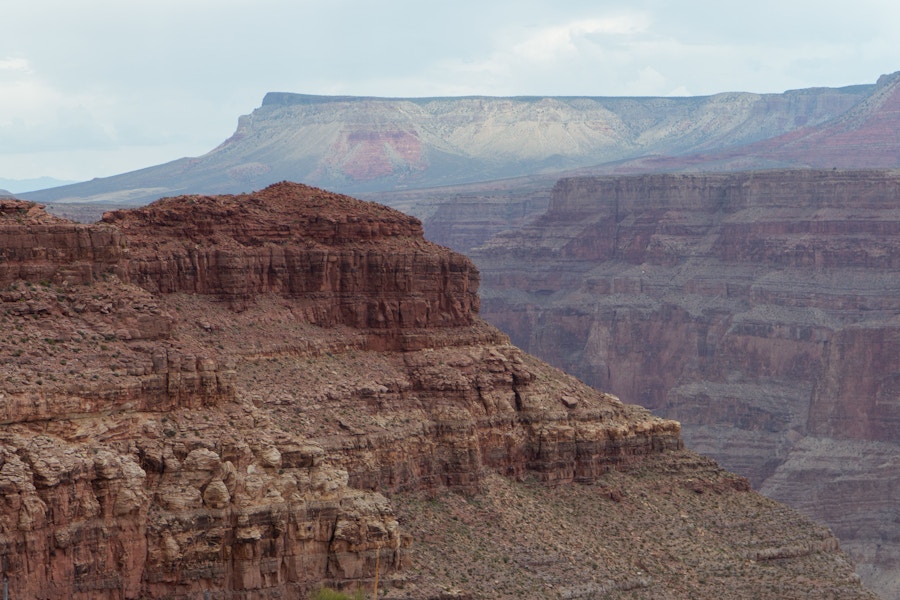Oftentimes the impression we have (if we have one at all) of the Desert Fathers and Mothers is of a group of austere, somber, joyless folks living basically solitary lives, mostly because they couldn’t stand to be with people — extreme introverts seeking religious justification for their contempt for society. Though this was certainly the case with some of them (many would have been absolutely terrible guests at a dinner party), the most clear-minded and spiritually vibrant among them show us by word and example that the goal of the spiritual life is one thing: love. In fact, they thought that lovelessness was a sure sign of either spiritual immaturity or that something had gone disastrously wrong in the spiritual life. If you don’t love, you just don’t get it — “it” being God and his Kingdom. At all.
And of course this is precisely what the New Testament teaches us. As the apostle Paul wrote,
If I speak in the tongues of men or of angels, but do not have love, I am only a resounding gong or a clanging cymbal. If I have the gift of prophecy and can fathom all mysteries and all knowledge, and if I have a faith that can move mountains, but do not have love, I am nothing. If I give all I possess to the poor and give over my body to hardship that I may boast, but do not have love, I gain nothing. . . .
. . . These three remain: faith, hope and love. But the greatest of these is love. (1 Corinthians 13:1 – 3, 13, emphasis mine)
The greatest thing. Love.
As you read Paul’s epistles, you see that every chance he got, he made love the centerpiece of the spiritual life of the church. To the Philippians he wrote:
And this is my prayer: that your love may abound more and more in knowledge and depth of insight, so that you may be able to discern what is best and may be pure and blameless for the day of Christ, filled with the fruit of righteousness that comes through Jesus Christ — to the glory and praise of God. (Philippians 1:9 – 11)
To the Ephesians he wrote:
Follow God’s example, therefore, as dearly loved children and walk in the way of love, just as Christ loved us and gave himself up for us as a fragrant offering and sacrifice to God. (Ephesians 5:1 – 2)
And to the Thessalonians he wrote:
Now about your love for one another we do not need to write to you, for you yourselves have been taught by God to love each other. And in fact, you do love all of God’s family throughout Macedonia. Yet we urge you, brothers and sisters, to do so more and more. (1 Thessalonians 4:9 – 10)
Love is the purpose. Love is the goal. Love is what it’s all about. One of Jesus’ best friends, John, who knew the love of God made manifest in Jesus as well as anyone, put it like this:
Dear friends, let us love one another, for love comes from God. Everyone who loves has been born of God and knows God. Whoever does not love does not know God, because God is love. . .
. . . . Whoever lives in love lives in God, and God in them. (1 John 4:7 – 8, 16)
John’s words leave us with absolutely no wiggle room — if you don’t love, you don’t know God, because God’s very essence is love. Period. Full stop. And of course all of this was simply an ongoing exploration of and elaboration on the teaching of Jesus himself, who said not only that the whole Old Testament could be summed up by the commands to love God and one another (Matthew 22:40) but also that by love and love alone the world would know that we belong to him (John 13:35) — to him who is Love Incarnate.
This is what the Desert Fathers and Mothers — at their best — were after: the pure heart, the stripping away of everything in their lives that did not serve the purpose of love, the destruction of everything in their hearts that blocked or hindered the flow of the love of God in their lives. Love was what drew them to the desert. Love was the goal of their ongoing spiritual efforts. Everything they did was undertaken for the love of God and others. The point of spiritual discipline for them was the disciplining of the heart for this one thing: love.
A fantastic example of this is that of Abba Amoun, who came to Abba Anthony one day and said, “Since my rule is stricter than yours how is it that your name is better known amongst men than mine is?” To which Abba Anthony answered, “It is because I love God more than you.”1 The story should make you chuckle. I laugh every time I read it. I mean, where does Anthony get off saying something like that? But of course he can say it — and say it without a trace of hubris — because it is quite simply the truth. Amoun was stricter with himself; Anthony is happy to concede the point. But Amoun had missed the goal and purpose of the spiritual life. That purpose was love. Anthony got it. And his life was radiant with love.
The story illustrates precisely what Abba Moses sought to convey to Cassian and Germanus: that strictness or severity of one’s “rule” (the set of commitments a monk made that ordered their lives) was not the goal of the spiritual life. The “rules” — the patterns of fasting and prayer and self- denial and devotion — were put in place to help guide the heart into a greater love for God and neighbor. Without that overriding goal, they were sure to degenerate into self-justifying demonstrations of religiosity. But with that goal in place, the spiritual disciplines served as trellises by which the vine of the heart grew up, fanned out, and became fruitful in love.
And Anthony’s own life demonstrates it well. Though he was certainly known for profound acts of self-denial, he was ultimately better known for a rare quality of tenderness, of care for others, of gentle love. As he served as a spiritual father to a handful of monks, Anthony’s leadership was marked by wise and gentle care. Consider the following story:
A hunter in the desert saw Abba Anthony enjoying himself with the brethren and he was shocked. Wanting to show him that it was necessary sometimes to meet the needs of the brethren, the old man [Anthony] said to him, “Put an arrow in your bow and shoot it.” So he did. The old man then said, “Shoot another,” and he did so. Then the old man said, “Shoot yet again,” and the hunter replied, “If I bend my bow so much I will break it.” Then the old man said to him, “It is the same with the work of God. If we stretch the brethren beyond measure they will soon break. Sometimes it is necessary to come down to meet their needs.” When he heard these words the hunter was pierced by compunction [meaning that he was cut to the heart] and, greatly edified by the old man, he went away. As for the brethren, they went home strengthened.2
How we treat people matters. Our care for people is the measure of our devotion, a sure and inviolable index of our love for God. Jesus and the apostles taught that. So did Anthony: “Our life and our death is with our neighbor. If we gain our brother, we have gained God, but if we scandalize our brother, we have sinned against Christ.”3 Of Abba Anthony’s teaching, one of the most prolific theologians of our day, the former Archbishop of Canterbury Rowan Williams, remarks that “winning” our brother or our sister is not about “getting them signed up to something or getting them on your side.” It is, rather, about “opening doors for them to healing and wholeness. Insofar as you open such doors for another, you gain God, in the sense that you become a place where God happens for somebody else.”4 “What is to be learned in the desert,” he says, “is clearly not some individual technique for communing with the divine but the business of becoming a means of reconciliation and healing for the neighbor.”
And that very thing — becoming a means of healing and reconciliation for the neighbor — is just what the Desert Fathers and Mothers were known for. On one occasion, some old men in the community brought a young woman who was pregnant out of wedlock to Abba Ammonas, a disciple of Anthony’s who had become a bishop in the community. They wanted him to give her a penance. Instead, he made the sign of the cross on the young woman’s womb and ordered that six pairs of fine linen sheets be given to her. The old men were stunned: “Why did you do that?” they asked. “Give her a punishment,” they demanded of him. Ammonas replied, “Look, brothers, she is near to death; what am I to do?” Ammonas knew that no punishment could be worse than the shame and fear that the woman felt. What was needed was not judgment but mercy. At his words, the old men departed speechless, their accusations shattered by Ammonas’s tenderness toward the young woman.5
A loving, tender heart toward others — that’s what we’re trying to cultivate. If we don’t have that, nothing else matters. Abba Agathon remarked that “a man who is angry, even if he were to raise the dead, is not acceptable to God.”6 In the same spirit, Abba Moses counseled that we should
do no harm to anyone, do not think anything bad in your heart towards anyone, do not scorn the man who does evil, do not put confidence in him who does wrong to his neighbour, do not rejoice with him who injures his neighbour. . . . Do not have hostile feelings towards anyone and do not let dislike dominate your heart; do not hate him who hates his neighbour.7
Think about that. The kind of heart that we are trying to cultivate is not only one in which there is no dislike whatsoever — but even more, it is one in which there is no dislike for the person who dislikes others. This kind of love is capable of tender affection for everyone. Like God’s love is — the kind of love that finally makes lovers out of the loveless.
- 1. As told in Benedicta Ward, trans., The Sayings of the Desert Fathers: The Alphabetical Collection (Kalamazoo, MI: Cistercian, 1984), 31. ↩︎
- 2. Ward, Sayings, 3 – 4. ↩︎
- 3. Ward, Sayings, 3. ↩︎
- 4. Rowan Williams, Where God Happens: Discovering Christ in One Another (Boston: New Seeds, 2005), 24. Emphasis mine. ↩︎
- 6. Ward, Sayings, 27. ↩︎
- 7. Ward, Sayings, 23. ↩︎
- 8. Ward, Sayings, 142 – 143. ↩︎
Taken from Streams In the Wasteland: Finding Spiritual Renewal with the Desert Fathers & Mothers by Andrew Arndt © 2022. Used by permission of NavPress. All rights reserved. Represented by Tyndale House Publishers, Inc.
Photo by Jacob Padilla on Unsplash
Text First Published September 2022 · Last Featured on Renovare.org August 2023


